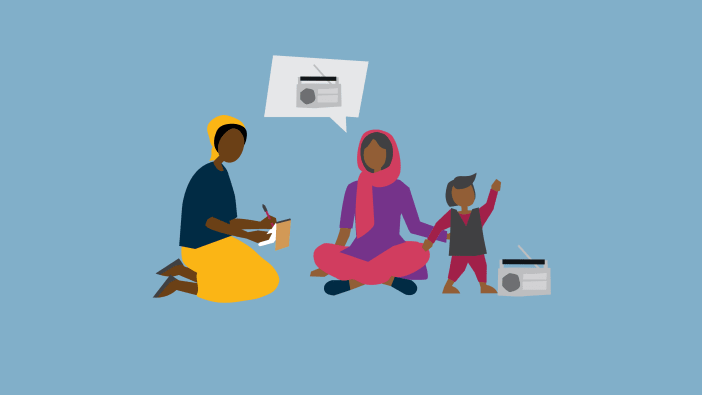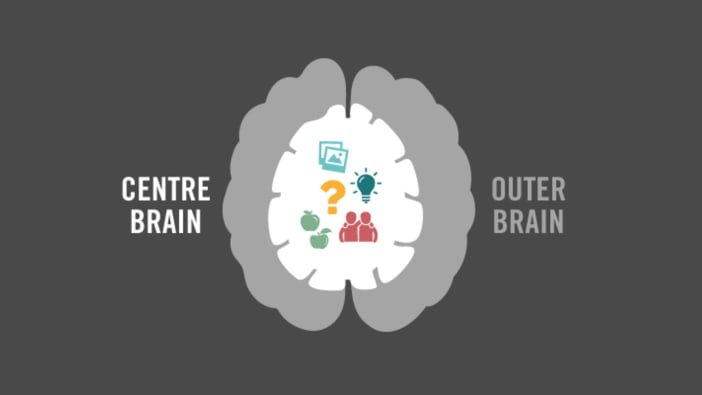The media is a major force in shaping both national and international agendas on development issues. ‘Media’ includes newspapers, magazines, radio, television, the internet, books, and other forms of publishing. If the media highlights a particular issue, it can often really change the situation and encourage a response from the public and the government. It is unhelpful to see the media as separate from relief and development work or as something to avoid. Instead, it is vital that development organisations and churches build good relationships with the media if they want to make changes and have a real impact in the world.
For several years I worked as a journalist covering social, political and development issues for international news agencies in west and central Africa. I often felt frustrated because most of the press or information officers within the development organisations I worked with could not appreciate what I wanted from them. I longed for simple stories that focused on individual people’s experience. Instead, I was given lots of long press releases full of technical terms that took several phone calls to understand.
When I contacted organisations for stories, some were so scared of talking to journalists that they never kept their promises to call back. At the other extreme, some would organise ‘meals’ and press conferences for simple issues that I could have dealt with in just a few phone calls.
As a journalist, what I found most useful were short press conferences where I could learn relevant facts and possible news items that I could use in my five-minute radio programme. Instead I would be invited to grand ceremonies with speeches delivered by everybody from the village chief to his chief warrior. By the time we got to hear the facts, my editor would be furiously calling me to get back to the studio or move to another assignment.
With experience, I became more selective of my sources of information. I turned down many press conferences and shredded boring press releases as soon as they emerged from my fax machine. I quickly realised that only a few organisations really know how to deal with the media. Most organisations, even though they are doing excellent work, do not know how to share this information with the public.
Developing good relationships with the media
The key to working effectively with the media is to build good relationships with journalists. Find out which local reporters write about the issues that relate to your work. Get to know them, find out what sort of stories they are interested in. Then when you have a story you can send it directly to them, and follow up with a phone call. This is often more effective than sending out general press releases.
- Most journalists, except the few who are involved with very specialised and technical fields, are interested in stories of individuals’ experiences. Avoid sending lengthy, dull reports and policy documents to them. Unless reports are specifically requested, break down the content of reports and policy documents into interesting short stories focusing on the people involved.
- When press conferences are necessary, keep them short and be very clear about the message you want to give. Do not bore journalists with long speeches about your organisation.
- Press releases should be short and contain the most important information in the first paragraph. Journalists are often more likely to use a story if it is already written in the style and length of article appropriate to their publication.
- It is very helpful for organisations to have a dedicated staff member who can deal with the media. This person is usually known as Press Officer or Information Officer. He or she should be trained how to communicate with the media and be able to develop useful relationships with them. If your organisation cannot afford such a post, a senior person in the organisation should be trained and given responsibility for carrying out this important work.
- Although it is a good idea to take the initiative in sharing information, avoid making constant demands for media attention. Do not organise unnecessary press conferences or media lunches or try to attract cheap publicity for your organisation, as this may mean the media will not take you seriously.
- Never allow your organisation to be pushed into a situation where you have to pay for stories about your good works to be printed or broadcast. Be careful about any gifts you may make to journalists.
- Respond as quickly and as accurately as possible to queries from media organisations. Be honest.
- In difficult situations, don’t be afraid to refuse to answer a question. Try to avoid unhelpful responses such as ‘No comment’. When in doubt, ask for time to provide a better and accurate response. Be firm but polite.
Media as an advocacy tool
Organisations can use the media in a strategic way to share their objectives, visions and goals with a larger audience. Through careful planning, organisations could gain the attention of the wider public on the issues they are dealing with. For example, an organisation working with abandoned children fathered by foreign peace– keepers in Liberia, brought the plight of these children to the knowledge of the world through working with Liberian and international journalists. As a result, the Liberian government and the international community has been forced to look into issues of child abuse and to develop better policies.
It is very important for organisations to understand the media environment in the area where they work. Remember that media organisations have their own vision and objectives, and will often have their own agenda on an issue. This may be openly declared or hidden, but needs to be clearly understood. If not, an organisation could become involved in a relation– ship that, instead of supporting and promoting its work, could harm it.
Babatope Akinwande worked as a reporter for the BBC in Côte d’Ivoire, and freelance for Radio France internationale and Deutsche Welle Radio covering west and central Africa. He is now Tearfund Desk Offi cer for Côte d’Ivoire, Guinea-Bissau, and Chad. He continues to write occasional articles in journals, magazines, and online.
ELINATA KASANGA is a subsistence farmer from Balakasau, a remote village in eastern Zambia where Tearfund partner Evangelical Fellowship of Zambia works. In July 2005, she spoke to the UK Chancellor Gordon Brown by live video link organised by Tearfund. The conversation happened on the day that the leaders of the UK, France, Germany, Italy, Russia, Japan, Canada and the US met in the UK for talks, which included discussions on development and climate change.
Elinata was able to speak directly to the Chancellor and raise the issues that people in her village face. She highlighted the problems of HIV and drought. ‘So many people have died in our village and that has led to orphans who have been adopted by foster parents and orphans who are in child-headed homes. This is a big challenge for us.’ Elinata also told the Chancellor that her two eldest children could not go to secondary school and that her family was denied adequate healthcare because the costs were too high.
The Chancellor said that governments must take action to end poverty and told Elinata that ‘you and your family are one of the reasons why we must take action.’









